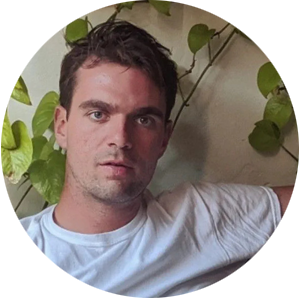Welcome to Infoscape.
Founded in 2005 at Toronto Met University (formerly Ryerson University), the IRL develops software based research tools, critical theories and experimental research methods to explore the cultural and political impact of digital infrastructures.
Greg Elmer,
Director
Greg Elmer (PhD, University of Massachusetts Amherst) is Bell Media Research Chair and Professor of Professional Communication at Toronto Metropolitan University. In addition to conducting scholarly research Greg has produced, co-produced and directed award winning documentaries, broadcast news segments, newspaper columns, and digital media research software. Greg’s current research focuses on conditions of media scarcity & social justice, cold war media, the history of media financialization, and digital forms of disinformation, discrimination and politics.
Greg previous held academic appointments at the University of Pittsburgh, Boston College and Florida State University. His research and teaching focus on new media and politics, surveillance studies, media financialization, and documentary film production. Greg was previously visiting Faculty Fellow at Amsterdam’s Virtual Knowledge Studio, the National Center for E-Social Science at the University of Manchester, the Social Science Research Council in New York City, the London School of Economics, Goldsmiths College, Yeungnam University, and Erasmus University. In the fall of 2022 he will be visiting faculty fellow at Sodertorn University, Stockholm.
Greg has published a number of books: Compromised Data: From Social Media to Big Data (co-edited with Ganaele Langlois and Joanna Redden, Bloomsbury, 2015), Infrastructure Critical (with Alexandra Renzi, ARP 2012), The Permanent Campaign: New Media, New Politics (with Ganaele Langlois & Fenwick McKelvey, Peter Lang, 2012), Preempting Dissent: The Politics of an Inevitable Future, (with Andy Opel, ARP Press, 2008), Profiling Machines: Mapping the Personal Information Economy (2005: MIT Press),Critical Perspectives on the Internet (2002: Rowman and Littlefield), Contracting Out Hollywood: Runaway Productions and Foreign Location Shooting, (with Mike Gasher co-editor, Rowman and Littlefield, 2005), and Locating Migrating Media (with Charles Davis & Janinne Marchessault, Lexington Press, 2010).
Greg serves on the editorial board of The Information Society, Internet Histories, Social Media & Society, Communication & Critical/Cultural Studies, Topia, PARISS, the Canadian Journal of Communication, the Interactive Film & Media Journal, and the American Communication Journal.
Ganaele Langlois,
Associate Director
Ganaele Langlois (PhD York University) is an Associate Professor and Chair of the Communication studies department at York University, Canada. Her research interests lie in media theory and critical theory, with specific interest in the shaping of subjectivity and agency through and with media technologies. Her book, Meaning in the age of Social Media, was published by Palgrave in 2014. Professor Langlois is currently co-principal investigator on a SSHRC standard research grant to study the politics of social media platforms. She has also co-edited a book on the topic entitled Compromised Data? From Social Media to Big Data (Bloomsbury, 2015). She is currently working on a research project about textile as communication. Her research has been published in New Media and Society, Culture Machine, Communication and Critical-Cultural Studies, Television and New Media, and Fibreculture.

Anthony Burton,
Research Associate
Anthony Glyn Burton is a Ph.D. student and SSHRC Joseph Bombardier Fellow in the Department of Communications at Simon Fraser University. Anthony’s research is broadly concerned with the networked developments of epistemologies and ideology in technolgical and datafied environments. His other research interests include digital temporalities, computing, masculinity, and the body. He graduated from Toronto Metropolitan and York University’s Master of Arts in Communication & Culture, where he wrote his thesis on involuntary celibracy, programmatic epistemology, and masculinity under neoliberalism. He leads the Beyond Verification project at the Digital Democracies Institute in Vancouver and is a researcher at the Infoscape Lab. He is lead author of Algorithmic Authenticity (Meson Press, forthcoming) and his research has been published in First Monday, the Harvard Misinformation Review, Canadian Journal of Communication, and Social Media & Society.
Stephen Neville,
Research Associate
Stephen J. Neville is a SSHRC-funded PhD student of Communication and Culture at York University. His master’s research on privacy and surveillance issues of consumer technology was awarded the 2019 Beaverbrook Prize by the Canadian Communication Association. His doctoral research expands on this work by addressing the political implications of machine listening technologies. His interests center on sound studies, surveillance studies, and the politics of new media. He has an upcoming co-authored book chapter on voice assistants published by Routledge in the Handbook of Domestication (Ed. Maren Hartmann). Currently he is research assistant and co-author on the SSHRC funded media scarcity project (G. Elmer P.I.). His research has been published in Social Media & Society, Surveillance & Society, Convergence, Canadian Journal of Communication, and Journal of Sonic Studies.

Anh Phan Vu
Research Associate
Anh Phan Vu is a PhD candidate in the Communication & Culture program at Toronto Metroplitan University. More soon…
Samuel Shaftoe,
Research Associate
Sam Shaftoe is an MA graduate of the joint Communication & Culture program at TMU & York University. Sam provides research and programming support for the IRL.


Sara García Santamaría
Visiting Researcher
Erica Capecchi,
Visiting Researcher
Erica Capecchi is a final year SWWDTP2 (AHRC) funded PhD researcher supervised by Professor John Foot (School of Modern Languages, University of Bristol) and Professor Kevin Passmore (School of History, Archaeology and Religion, Cardiff University). Her current research interests and expertise concern the study of political aesthetics as applied to far-right propaganda and communication, with a focus on popular social media channels such as Facebook and Twitter. Considering the Italian case study as a crucial example in the current European political scene, her doctoral project investigates the ideologies, aesthetics, and representation of today’s far-right movements and explores the process of mainstreamisation and institutionalisation of their ideas in a global perspective. Drawing connections with transnational organisations, her thesis develops an analysis of the aesthetic strategies implemented by today’s Italian far-right groups and considers the potential of their digital propaganda to influence the current public and political debate in the online and offline domains. Beyond aesthetics and far-right studies, her research spans the fields of semiotics, visual cultures, fascist studies, digital media and communication, humour, memory, and modern Italian history. Erica presented her research at several seminars and conferences across Europe and the UK, and she is currently working on various publication projects. In 2021 she was awarded the UK-Canada Globalink Doctoral Exchange Scheme, co-funded by UKRI and Mitacs, which supported her work as a visiting researcher for three months at the Faculty of Computer Science at Lakehead University (ON, Canada). In July 2022 she attended the Oxford Digital Humanities Summer School (DHOxSS) and she has been recently awarded the UKRI Policy Fellowship to work with the research team at the Northern Ireland Assembly in Belfast (RaISe) from September to December 2023. Erica has been co-lead of the SWWDTP Memory Studies Research Cluster at the University of Bristol, and she is currently collaborating with the Cardiff Interdisciplinary Research on Anti-Fascism and the Far-Right (CIRAF). Between May and June 2023, she will work as a visiting researcher at Toronto Metropolitan University supervised by Professor Greg Elmer.



